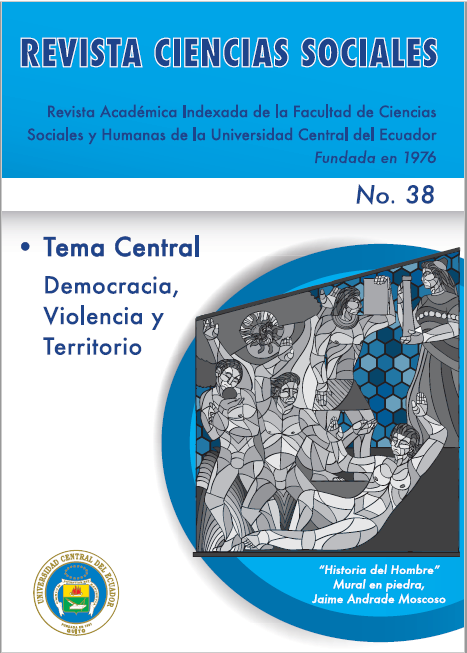Territories and structural change in peri-urban habitats: Coca Codo Sinclair, China investment and the energy matrix change in Ecuador
Keywords:
China-Latin America relations, megaprojects, extractivism, accumulation, EcuadorAbstract
This article investigates the relationship in inhabited spaces between, on the one hand, economic and political structures and, on the other hand, the processes of social and political production. The case of Ecuador is analyzed, where its new relationship with China is part of the process of accelerated capitalist modernization that has accompanied the golden decade of commodities in Latin America. The work is based on the analysis of the strategies that unfold in space and their effects. First, there is a review of the structural implications of the assertion of modes of extraction as the basis of the accumulation process. Next, the state of the Sino-Latin American relationship is analyzed through investment flows and the expansion of Chinese capital in Ecuadorian territory. In this way, the article explores the fundamentals of the transformation strategy of the energy and productive matrix, which incorporates changes in the technique, but maintains the bases of the economic accumulation: an extractive economy located in the periphery of the system. Finally, the reader can find a case study: the area of influence of the Coca-Codo-Sinclair megaproject, identifying transformations in the habitual dynamics of its populations.
Downloads
References
• Harvey, D. (2003). El Nuevo Imperialismo. Madrid: Ediciones Akal.
• —. (2003). Espacios de Esperanza. Madrid: Ediciones Akal.
• Lefevbre, H. (1972). Espacio y Política. París: Ediciones Anthropos.
• —. (1974). “La producción del espacio”, Revista de sociologia, (3): 219
Downloads
Published
How to Cite
Issue
Section
License
Política de acceso abierto
La revista Ciencias Sociales adhiere al modelo Acceso Abierto en el que los contenidos de las publicaciones científicas se encuentran disponibles a texto completo libre y gratuito en Internet, sin embargos temporales, y cuyos costos de producción editorial no son transferidos a los/las autores/as.
En ese sentido, no existe costo alguno para los/as autores/as en el envío o durante el proceso editorial, defendiendo el derecho a la información con equidad e iguales oportunidades de acceso.
Licencia y derechos de autor/a
Los autores conservan todos los derechos de publicación del artículo y conceden a la Revista Ciencias Sociales una licencia no exclusiva, intrasferible y sin regalías por duración ilimitada para su reproducción, distribución y comunicación pública a nivel mundial bajo una Licencia Creative Commons Atribución 4.0 Internacional (CC BY NC 4.0)


